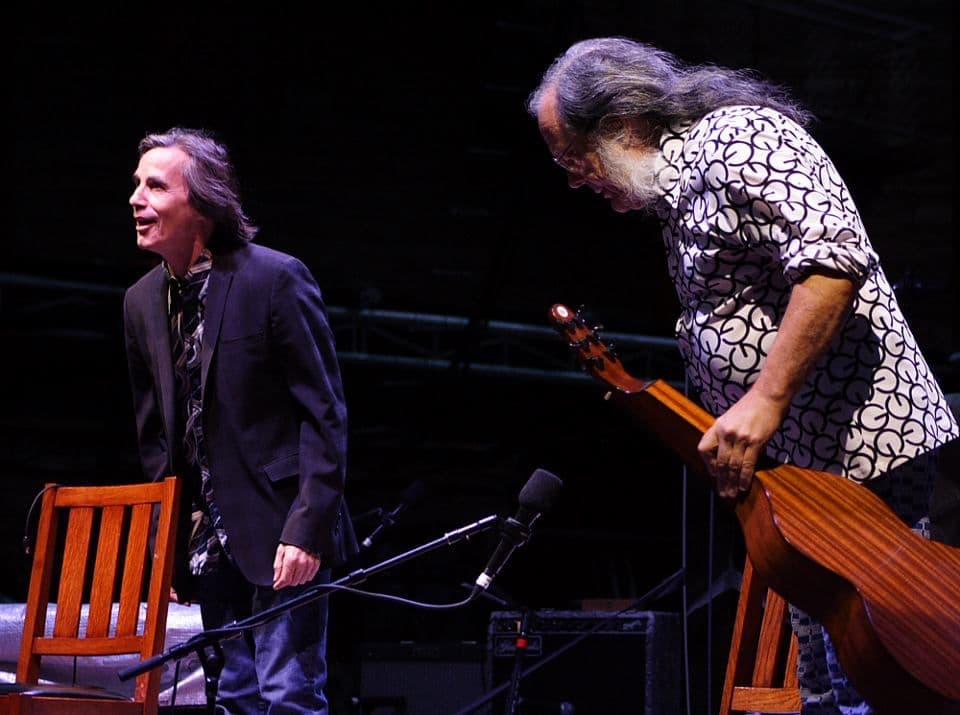
The road goes on forever, but the internal journey of restlessness, time, and loss is what truly fuels this classic.
For anyone who came of age in the late 1970s, the opening bars of “Running on Empty” are an instant time machine, a powerful evocation of endless asphalt and a lingering, soulful melancholy that somehow managed to feel both intensely personal and utterly universal. It is the signature song of singer-songwriter Jackson Browne, forever tied to one of the most brilliant and unconventional albums of the era, also titled Running on Empty.
Released as a single in early 1978, the track found immediate resonance, climbing the charts to peak at No. 11 on the U.S. Billboard Hot 100. This commercial success cemented the song’s place in the rock canon, yet its modest chart position belies its enormous cultural footprint. The song’s unique quality is inextricably linked to its recording, a concept album in which every track—including the title song—was recorded on the road in 1977. “Running on Empty” itself was captured live on stage at the Merriweather Post Pavilion in Columbia, Maryland, on August 27, 1977. This authentic, vérité approach to recording gave the entire album, and particularly this song, a palpable sense of movement and weary authenticity.
The story behind the song is literally the story of Jackson Browne’s life as a touring musician. He’d conceived of an album that would document the perpetual motion, the triumphs, and the exhaustion of life on tour. The “empty” in the title is, of course, the gas tank, a mundane reality of travel, but Browne masterfully uses this simple, recurring motif—checking the oil, finding a station—as a profound metaphor. The gas tank running empty symbolizes the diminishing resources of youth, hope, and emotional connection in a life lived at high speed. The lyrics detail autobiographical markers (“In ’65 I was seventeen,” “In ’69 I was 21”) that track the artist’s own timeline, tying the narrative of perpetual motion to the inevitable march of time and the sense of constantly falling behind: “Gotta do what you can just to keep your love alive / Trying not to confuse it with what you do to survive.” It is a clear-eyed contrast to the romanticized freedom of the open road, instead emphasizing the cost of that freedom—the loss of lasting connections and the nagging question of where it all began and where it will end.
Crucially, any discussion of this song is incomplete without honoring the towering, mournful genius of David Lindley, whose lap steel guitar work is an absolute essential component. Lindley‘s slide guitar is the song’s very soul, its liquid, wailing lines echoing the emotional emptiness and longing that Browne sings about. Their musical association, which began years earlier, elevated the track from a poignant folk-rock song to an enduring classic, with Lindley‘s contribution being as vital as Browne‘s vocals and lyrics. It is this combination—the poetic honesty of Jackson Browne and the musical genius of David Lindley and his band, including Danny Kortchmar, Craig Doerge, Leland Sklar, and Russ Kunkel—that makes “Running on Empty” a touchstone. It captures the zeitgeist of a generation sensing its own emotional and energetic reserves were dwindling, perfectly encapsulated in a recording that sounded like it was being created as you listened, a raw, real document of a life lived on the fly. It remains one of Browne‘s most moving and perpetually relevant works.